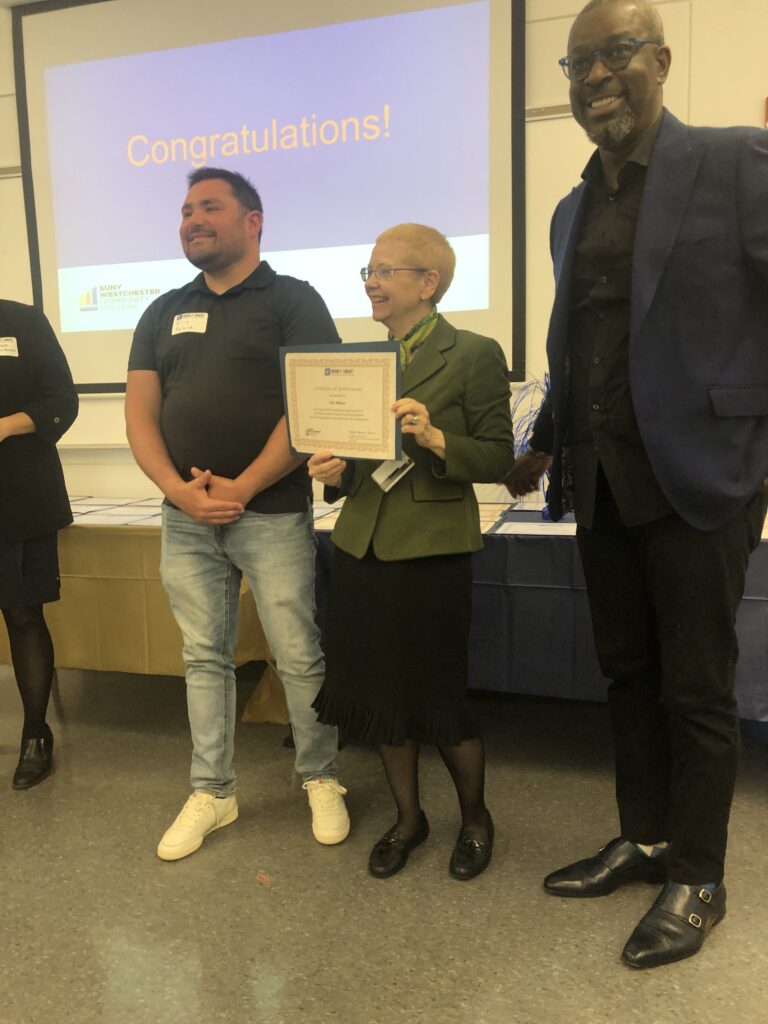Westchester Community College and Money Smart Forum
In 2011, JPMorganChase (JPMC) partnered with Westchester Community College (WCC) to create the Center for Financial and Economic Education (CFEE). This Center is dedicated to delivering personal finance education to WCC students and the greater Westchester community. At the time, JPMC was interested in finding ways to expand programming to reach adults of all ages within the diverse WCC population. After three years of delivering an array of seminars, classes, and workshops, WCC was challenged to shift its focus to a different model, focusing on financial coaching for students at the college, with the goal of improving students’ persistence and college completion by positively impacting their financial capability.
Motivated by evidence from behavioral economics, WCC launched the Money Smart Forum (MSF) in 2015. Knowing that workshops and classes that were designed to disseminate personal finance information did not necessarily change individual behavior or decision-making, WCC launched a new pilot program. The goal of the pilot was to design a set of interventions to help students set measurable financial goals and guide them toward achieving those goals, while also changing their financial habits and adopting new behaviors. This new pilot model included one-on-one coaching, whereby coaches met with students regularly over the course of a semester.
The main objectives of the coaching process were to assist students to improve financial health in four critical areas: increasing savings, reducing debt, improving credit and increasing income.

When students signed up to participate, they were assigned a coach, with whom they met approximately twice a month. MSF coaching was open to any student at the college, including those in credit degree programs as well as noncredit and workforce programs. Outcomes for the program were measured by a set of defined metrics, intended to capture a student’s progress towards setting goals, saving, paying down debt, improving credit, and getting a new or higher-paying job.
As expected, the pilot demonstrated that the more meetings a student had with a coach, the more successful they were in achieving financial goals. From 2015-2019 over 500 student participants exceeded targets for number of meetings, average savings, average debt reduction, and improvement in credit. Over 50% of students in the program were able to save for three consecutive months, which was a benchmark for a habit of saving. As the program continued during the Covid years of 2020-2022, it became more challenging for students to meet the same level of savings and debt reduction, since many were unemployed, but the outcomes were still positive. From 2017-2019, students in the program had a significantly higher persistence rate (fall to fall) than the overall community college population, which helped to validate the Money Smart approach.
In 2020, with funding from JPMC, WCC published Building Financial Capability Through Financial Coaching. This publication is a resource for community colleges and a step-by-step guide for any college seeking to launch a financial coaching program. The Guide is also available on the WCC website at: https://www.sunywcc.edu/about/gateway-center/center-for-financial-and-economic-education/

